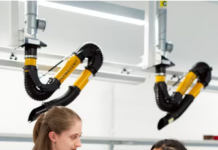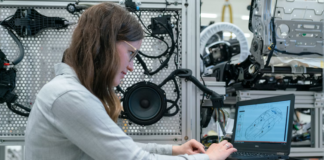The Internet of Medical Things (IoMT) represents a transformative paradigm in healthcare, integrating medical devices, sensors, and digital technologies to enhance patient care, improve clinical outcomes, and optimize healthcare delivery. This exploration delves into the key trends, challenges, and opportunities shaping the future of IoMT and its impact on healthcare innovation and patient-centric care.
The IoMT landscape is evolving rapidly, driven by technological advancements, data-driven insights, and the convergence of healthcare and digital ecosystems. Key trends shaping the future of IoMT include:
- Interoperability and Data Integration: The future of IoMT emphasizes interoperability standards and seamless data integration across healthcare systems, devices, and platforms. Interoperable IoMT solutions enable real-time data exchange, interoperable medical records, and holistic patient insights, empowering healthcare providers with comprehensive information for informed decision-making and personalized patient care.
- AI and Predictive Analytics: Artificial intelligence (AI) and predictive analytics play a pivotal role in the future of IoMT, leveraging machine learning algorithms, deep learning models, and predictive analytics tools to analyze vast amounts of healthcare data. AI-driven IoMT solutions enable predictive diagnostics, early disease detection, treatment optimization, and proactive healthcare interventions, improving patient outcomes, reducing healthcare costs, and enhancing population health management.
The future of IoMT holds immense potential for revolutionizing healthcare delivery, transforming patient experiences, and driving healthcare innovation across various domains:
- Remote Patient Monitoring and Telemedicine: IoMT enables remote patient monitoring (RPM) and telemedicine solutions, facilitating virtual consultations, remote diagnostics, and continuous monitoring of patient health metrics. Wearable devices, smart sensors, and IoMT platforms empower patients to manage chronic conditions, monitor vital signs, and engage in proactive self-care, while healthcare providers deliver timely interventions, personalized treatments, and remote healthcare services.
- Healthcare Automation and Robotics: IoMT technologies drive healthcare automation and robotics applications, streamlining clinical workflows, enhancing operational efficiency, and improving healthcare delivery. Robotic-assisted surgeries, medical robots, and automated healthcare systems leverage IoMT connectivity, data analytics, and AI-driven insights to enhance surgical precision, reduce errors, and optimize patient outcomes, transforming the future of surgical procedures and healthcare operations.
Challenges and Considerations:
Despite its transformative potential, the future of IoMT faces challenges and considerations that require attention and strategic planning:
- Data Security and Privacy: IoMT introduces data security and privacy concerns related to sensitive patient data, cybersecurity threats, and regulatory compliance. Safeguarding patient information, implementing robust cybersecurity measures, and ensuring data encryption and anonymization are essential to protect patient privacy and maintain trust in IoMT solutions.
- Interoperability and Standardization: Achieving seamless interoperability and standardization across IoMT devices, platforms, and healthcare systems remains a challenge. Developing common data standards, interoperable protocols, and secure data exchange mechanisms is critical to enable seamless communication, data sharing, and integration of IoMT solutions into existing healthcare infrastructures.
The future of IoMT holds promise for transforming healthcare delivery, improving patient outcomes, and driving innovation in healthcare systems. Embracing technological advancements, addressing challenges, and fostering collaborative partnerships will unlock the full potential of IoMT, shaping a more connected, efficient, and patient-centric healthcare ecosystem.




























